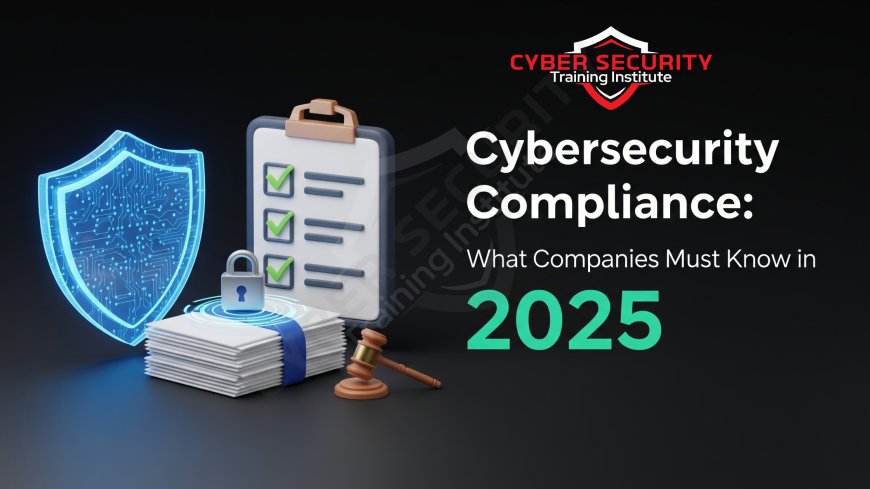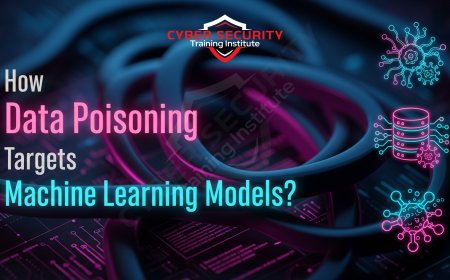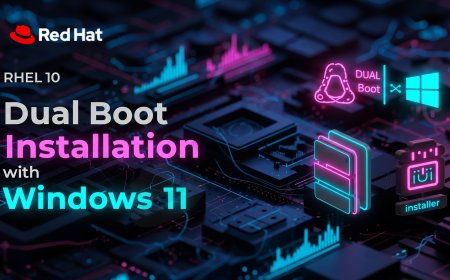Cybersecurity Compliance | What Companies Must Know in 2025
In 2025, cybersecurity is no longer just a tech issue—it’s a business imperative. With data breaches making headlines and regulations tightening worldwide, companies of all sizes must prioritize cybersecurity compliance to protect their customers, reputation, and bottom line. Whether you’re a small startup or a global enterprise, understanding the rules and best practices is essential to avoid hefty fines, legal trouble, and damaged trust. This blog post breaks down what cybersecurity compliance means in 2025, why it matters, and how your company can stay ahead of the curve.

Table of Contents
- What Is Cybersecurity Compliance?
- Why Cybersecurity Compliance Matters
- Key Cybersecurity Regulations in 2025
- Steps to Achieve Compliance
- Common Compliance Challenges
- Best Practices for Staying Compliant
- Conclusion
- Frequently Asked Questions
What Is Cybersecurity Compliance?
Cybersecurity compliance means following laws, regulations, and standards designed to protect sensitive data and ensure secure business operations. These rules dictate how companies collect, store, process, and share data, especially personal or financial information. Compliance often involves adopting specific security measures, like encryption or access controls, and regularly auditing systems to prove adherence.
In 2025, compliance is driven by both government regulations and industry standards. For example, a healthcare provider must comply with laws protecting patient data, while an e-commerce business needs to secure credit card transactions. Non-compliance can lead to fines, lawsuits, or even business closure.
Why Cybersecurity Compliance Matters
Compliance isn’t just about checking boxes—it’s about building trust and resilience. Here’s why it’s critical:
- Protecting Customer Data: Customers expect their personal information to be safe. A breach can erode trust and drive them away.
- Avoiding Fines: Penalties for non-compliance can be staggering—some regulations impose fines in the millions.
- Preventing Breaches: Compliance frameworks often include proven security practices that reduce the risk of cyberattacks.
- Maintaining Reputation: A public data breach can damage a company’s brand for years.
- Legal Obligations: Many industries are legally required to follow specific rules, with no exceptions.
Key Cybersecurity Regulations in 2025
The regulatory landscape is complex and varies by industry and region. Below is a table summarizing some of the most important regulations companies need to know in 2025.
| Regulation | Region | Key Requirements | Industries Affected |
|---|---|---|---|
| GDPR | European Union | Data protection, user consent, breach notification within 72 hours | All industries handling EU citizens’ data |
| CCPA/CPRA | California, USA | Consumer data rights, opt-out options, transparency | Businesses with California residents’ data |
| HIPAA | USA | Protect patient health information, secure data storage | Healthcare, insurance |
| PCI DSS | Global | Secure credit card transactions, regular audits | E-commerce, retail, finance |
| NIS2 Directive | European Union | Strengthened cybersecurity for critical infrastructure | Energy, transport, health, digital services |
Each regulation has unique requirements, but they share a common goal: safeguarding data and ensuring accountability.
Steps to Achieve Compliance
Achieving cybersecurity compliance requires a structured approach. Here’s how companies can get started:
- Understand Applicable Regulations: Identify which laws and standards apply to your industry and region. For example, if you operate in Europe, GDPR is non-negotiable.
- Conduct a Risk Assessment: Evaluate your systems, processes, and data to identify vulnerabilities. This helps prioritize security efforts.
- Implement Security Controls: Adopt measures like encryption, multi-factor authentication (MFA), and firewalls to protect data.
- Create Policies and Procedures: Document how your company handles data, including incident response plans and employee training programs.
- Regular Audits and Monitoring: Perform regular checks to ensure compliance and catch issues early.
- Work with Experts: Consider hiring cybersecurity consultants or using compliance software to streamline the process.
Common Compliance Challenges
Compliance isn’t easy, especially for small businesses or those new to cybersecurity. Here are some common hurdles:
- Complexity of Regulations: Rules like GDPR or HIPAA are dense and hard to interpret without legal expertise.
- Cost: Implementing security measures and hiring experts can be expensive, especially for startups.
- Evolving Threats: Cybercriminals are always finding new ways to attack, making it hard to stay ahead.
- Employee Errors: Human mistakes, like clicking phishing links, are a leading cause of breaches.
- Global Operations: Companies operating in multiple countries must juggle different regulations simultaneously.
Best Practices for Staying Compliant
To make compliance manageable and effective, follow these best practices:
- Stay Informed: Regulations change frequently. Subscribe to industry newsletters or consult with legal experts to stay updated.
- Train Employees: Regular training on phishing, password management, and data handling reduces risks.
- Use Automation: Tools like compliance management software can simplify audits and monitoring.
- Prioritize Data Minimization: Collect only the data you need to reduce risk and simplify compliance.
- Plan for Incidents: Have a clear incident response plan to handle breaches quickly and comply with notification requirements.
Conclusion
In 2025, cybersecurity compliance is a non-negotiable part of running a business. With stricter regulations, sophisticated cyber threats, and growing customer expectations, companies must take compliance seriously to protect their data and reputation. By understanding key regulations, implementing strong security measures, and staying proactive, businesses can not only avoid penalties but also build trust and resilience. Start small, stay informed, and don’t hesitate to seek expert help to navigate this complex landscape. Compliance isn’t just about following rules—it’s about securing your future.
Frequently Asked Questions
What is cybersecurity compliance?
It’s the process of following laws, regulations, and standards to protect sensitive data and ensure secure operations.
Why is compliance important for businesses?
Compliance protects customer data, avoids fines, prevents breaches, and maintains your company’s reputation.
What happens if a company doesn’t comply?
Non-compliance can lead to hefty fines, lawsuits, data breaches, and loss of customer trust.
What is GDPR?
GDPR is a European Union regulation that sets strict rules for protecting personal data and requires user consent.
Who needs to comply with GDPR?
Any business handling personal data of EU citizens, regardless of where the company is based.
What is the CCPA?
The CCPA (and its update, CPRA) is a California law giving consumers rights over their personal data, like opting out of data sales.
What is HIPAA?
HIPAA is a U.S. law that protects patient health information in the healthcare industry.
What is PCI DSS?
PCI DSS is a global standard for securing credit card transactions and protecting cardholder data.
What is the NIS2 Directive?
An EU regulation strengthening cybersecurity for critical infrastructure like energy and transport.
How can a small business afford compliance?
Start with low-cost measures like employee training and use affordable compliance tools or consultants.
What is a risk assessment?
It’s a process to identify vulnerabilities in your systems and data to prioritize security efforts.
How often should audits be conducted?
Most regulations require annual audits, but quarterly checks can help catch issues early.
What is encryption?
Encryption scrambles data to make it unreadable without a key, protecting it from unauthorized access.
What is multi-factor authentication (MFA)?
MFA requires multiple forms of verification (e.g., password and phone code) to access systems.
Can software help with compliance?
Yes, compliance management software automates tasks like audits and monitoring.
What is an incident response plan?
A plan outlining steps to handle a data breach, including containment and notification.
How do I train employees on cybersecurity?
Use regular workshops, online courses, or simulations to teach safe practices like spotting phishing emails.
What is data minimization?
It’s the practice of collecting only the data you need to reduce risk and simplify compliance.
Do startups need to worry about compliance?
Yes, even small businesses can face fines or breaches if they don’t comply with relevant regulations.
How do I stay updated on regulations?
Subscribe to industry newsletters, follow regulatory websites, or consult with cybersecurity experts.
What's Your Reaction?
 Like
0
Like
0
 Dislike
0
Dislike
0
 Love
0
Love
0
 Funny
0
Funny
0
 Angry
0
Angry
0
 Sad
0
Sad
0
 Wow
0
Wow
0
















